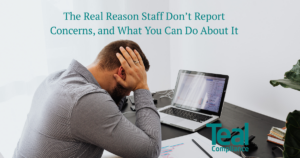Having worked in several different law firms over the past 10 years, it has been interesting to see how each firm has dealt with conflict checking differently.
Many medium to large law firms have teams running conflict checks for the firm. From my experience however in many of these firms the individuals running these conflict searches are simply looking for a match in data. But…. are they given enough training on the legal concepts surrounding conflicts of interest to really know what to look out for and to identify conflicts and potential conflicts.
Most smaller firms don’t have the resources to have a dedicated team to deal with conflict checking and it is therefore the responsibility of the fee earner to conduct a conflict check themselves. However, as a fee earner, is this “non-chargeable time” spent actually checking all the relevant parties? In some cases I fear not!
When I first started my legal career I worked as a paralegal dealing with debt recovery matters. I worked for a smaller firm so responsibility for conducting conflict checks was on me, which, having never been given any real training, proved quite difficult. Because of the lack of training I ended up opening a file and suing one of our client’s subsidiaries … whoops!
It is important to remember however that a conflict check is only as good as the data stored in a firm’s case management system. Firms need to make sure they have enough controls in place to ensure they are capturing the correct data for a conflict check to be properly carried out and have any value.
It then comes down to how a potential conflict of interest is dealt with. When I was buying my first property, I was informed by the estate agent that the Seller had instructed the same solicitor as me, but that this was “fine” because the Seller’s solicitor was based in a different office. Thinking back to this now with the legal experience I have, it is clear that, this was a conflict of interest and more should have been done by my Solicitor to make me aware of the possible implications and risks (rather than leaving it to the estate agent to tell me). I can’t really complain, they did a great job, however I do wonder what safeguards they actually had in place.
In November 2018, Sleigh Son & Booth solicitors were fined £2k and ordered to pay £20k in costs for acting where a conflict of interest breach may have arisen. The firm had acted for both vendor and purchaser in 9 conveyancing transactions where they had failed to advise either the vendor or purchaser that it was acting for the other and in 8 conveyancing transactions without obtaining either clients’ consent to do so. . The worst part was they had controls and protocols in place, they were just simply breached or forgotten.
This begs the question, should law firms be thinking more about what happens if they get it wrong?
Here are a few points I think Law Firms should consider when looking at conflict checking;
1. Training – Make sure your employees receive the training they require for their role and level of experience in respect of conflicts of interest and that they are aware of any internal systems, policies and procedures. It is always worth doing refresher training, as things do change!
2. Related Parties – Make sure all the relevant parties have been checked (You wouldn’t want to go suing one of your client’s subsidiaries!)
3. Data – It is important that all client and matter related parties are added to the case management system so they can be picked up in future conflict checks.
4. Potential conflict of interest? – Make sure you deal with any actual or potential conflict of interests appropriately. Do you require client consent, information barriers or do you simply have to decline to act? Remember the consequences if you get it wrong!
Get in touch
If you’d like to know more about our services, simply get in touch with one of our experts today.




